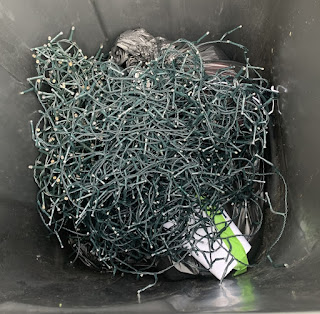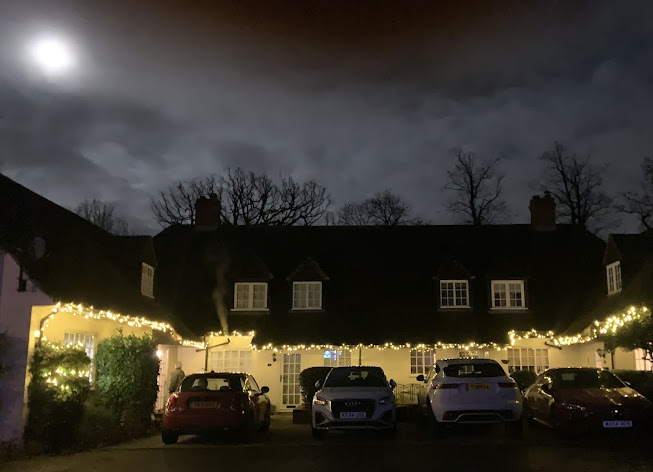In my last posting, I wrote about what I think a poem is and how it may be differentiated from prose.
I mentioned that in two years, there has never been a winning entry to the Queen’s English Society* poetry competition that has rhyme and that, in my opinion, most entries are at best, pretentious prose.
I also wrote that I have never been tempted to write a poem on the QES competition’s set theme as I don’t agree with set themes for poetry.
It seems that now the competition organiser agrees and for the next competition, there will be no theme.
There is a competition rule that, for some reason, poems must not exceed 20 lines in length.
Some years ago, after spending a week with my daughter’s family, I was moved to write a few light-hearted poems based on the antics and behaviour of my grandchildren who were aged 5 and 3 at the time. Of course, because they were aimed at children and because I am old, very old fashioned and set in my ways, they contained rhyme.
I looked through those poems recently and wondered how they might fare in the QES poetry competition. I selected one that I thought was quite good and was about to send it in when I realised that with 32 lines, it goes beyond the 20-line boundary.
I emailed the judge and explained that as my poem built slowly and gradually to a dull anticlimax, shortening it would spoil it. Could I send it in, nonetheless?
Three days later, she replied:
No, there is no point in sending your 32-line poem in for this competition because it exceeds the 20-line rule. There are other competitions you can enter it into.
This is the poem I might have entered:
Hurry up William
Hurry up William, we’re off to the shops.
We’re late and so please get a move on.
Leave all of your toys just wherever they are
And then put your shoes and your coat on.
Hurry up William, we’ve got to go now.
Stop playing around. I’m not joking.
Look at those clouds, it’s so gloomy and grey.
The last thing I want is a soaking.
Hurry up William, the shops will be packed
And with long, twisting queues at each till.
Come over here, let me do up your coat
And for goodness’ sake, try and stand still.
Hurry up William, yes, Bear can come too
But please make sure that he doesn’t stray.
Last time he somehow went off on his own
And was found in the fresh fruit display.
Hurry up William, just look at your hands.
They’re both filthy and covered in grime.
You haven’t been out, so how can it be
That you’re so dirty all of the time?
Hurry up William, aren’t you ready yet?
What on earth have you done with your hair?
It was so tidy just now when I looked.
What has happened? And no, don’t blame Bear.
Hurry up William. Oh no! Look outside.
It’s just pouring. There’s sleet and there’s hail.
You hear that? That’s thunder. Whatever next?
And now listen, it’s blowing a gale!
You’re ready at last. Is that what you said?
No, you’re not cos you’ve not got your hat.
It’s raining so hard that we’ll stay at home.
We are not going out in all that.
I wonder why the 20-line rule is necessary. I spent time on Google trying to discover if there is a name for a poem of 20 lines. It seems that there is no standard form of that length and therefore, no name for such a poem.
What I did discover - and this is rather exciting - is the draft of a play by George Bernard Shaw that was never published. It is about the length of a poem and how it affected Shaw’s contemporary, Rudyard Kipling.
So Long, Mister Kipling
It is the morning of February 8th, 1910, at Quayle and Morris’s offices in Old Quebec Street, London. A meeting has been arranged between Mr Simon Quayle, of Q & M, Publisher, and Mr Rudyard Kipling.
An office, sparsely furnished with a desk, two cabinets and three chairs. There is a large bookcase against the wall opposite Mr Quayle who is seated at the desk.
There is a knock on the door. Quayle puts down his pen and looks up.
Quayle
Come in.
The door opens and a gentleman enters. He nods towards Quayle, takes off his overcoat and hangs it on a hook.
Quayle
Good morning, Mister Kipling. Please sit down. It’s very good of you to come here and discuss things with us.
Kipling (seated opposite Quayle on the other side of the desk)
Not at all. I hope very much that we may come to some form of agreement.
Quayle
I am sure we will. First of all, thank you very much for considering us as your publisher. I am sure that whatever the problems you are having with Doubleday and Page, you won’t have here with us.
Kipling
I very much hope you are right. It’s been a difficult time.
Quayle
Well, a new start is clearly what you need. Thank you very much for sending us this poem. We all really like it.
Kipling
Thank you. I’m so glad you like it because I think it’s one of my best. I am really quite proud of it.
Quayle
Yes Kippers, we like it very much indeed but there is at least one shortcoming as we see it.
Kipling (surprised)
Really?
Quayle
Yes. We are of the opinion that it’s a bit too long.
Kipling (surprised and bewildered)
What do you mean, it’s a bit too long?
Quayle
Well, four verses at eight lines a verse is far too long for readers to concentrate. How about cutting it from thirty-two lines to, er, shall we say no more than twenty?
Kipling (bemused)
Why twenty? That’s an arbitrary number. No, I think that shortening it would ruin the tone and mood of the piece. I’d rather not. No, that’s completely out of the question.
Quayle
Whoa, Kippers, hear me out, old boy, hear me out.
We think you should cut out verses two and three altogether. Just remove them. They don’t add much to the “tone and mood” as you put it, and some of those lines are, and I’m sorry to have to say this, complete nonsense anyway.
Kipling (indignantly)
What on earth do you mean, nonsense?
Quayle (patiently)
Well, for a start, in verse two, how can dreams ever be your master? And surely, you only used master to rhyme with disaster a couple of lines later.
And while we’re on the subject of disaster, how the hell can triumph and disaster be impostors? What or who are they pretending to be? You don’t say why they’re impostors and so, I’m sorry to say this, Kippers but it’s just nonsense.
Kipling (heatedly and incredulous)
I’ve never heard such idiocy. Are you serious? How can you be publishers of poems when you know and understand absolutely nothing at all about poetry?
Quayle (calmly)
I’m sorry you feel that way, Kippers but my colleagues and I agree on that. There’s one more point. I don’t like, “build 'em up with worn-out tools,” either. That is just slapdash and wrong. We expect better from our writers. When written, it has to be, and “build them up with worn-out tools”. How people speak if and when they recite your poem is a matter that has nothing to do with us but we can’t allow sloppy English on the printed page.
Now, if that whole verse goes, we’re well on the way down to somewhere around twenty lines.
Kipling (angrily and aggressively)
Listen, clown! Who the hell is Kippers? If you are to call me anything it will be Mister Kipling. OK?
Cutting it down to twenty lines will ruin the whole flow of the piece. It makes it all just about meaningless.
Quayle (emphatically and belligerently)
Meaningless? I’ll tell you what’s meaningless. “Pitch and toss” in verse three – that’s what’s meaningless and again, Kippers - oh, sorry about that - you’ve only used that phrase to rhyme with loss at the end of another line.
Kipling (sighing with annoyance and standing up)
Pitch and Toss is a game played with pennies. Everybody knows that, you buffoon.
Quayle
I didn’t know that and now that I do, I don’t like it. It sounds as if it could be some kind of gambling. We can’t have that and so it has to go.
That means that now, with only verses one and four left, we’re where we want to be, down to sixteen lines and you’ve got the scope to add as many as four more. That gets you to twenty if you want it a bit longer - but I really don’t see why you would.
Kipling (putting on his overcoat)
What’s this insistence on twenty lines? It’s just a number you’ve plucked out of the air. I’ve had enough. I’ll be staying with Doubleday. Goodbye.
Kipling opens the office door.
Quayle (shouting after Kipling as he leaves the room)
Another thing. That title’s stupid too. If what, for God’s sake?
*At the 2024 AGM, the name was changed from the Queen's to The King’s English Society



